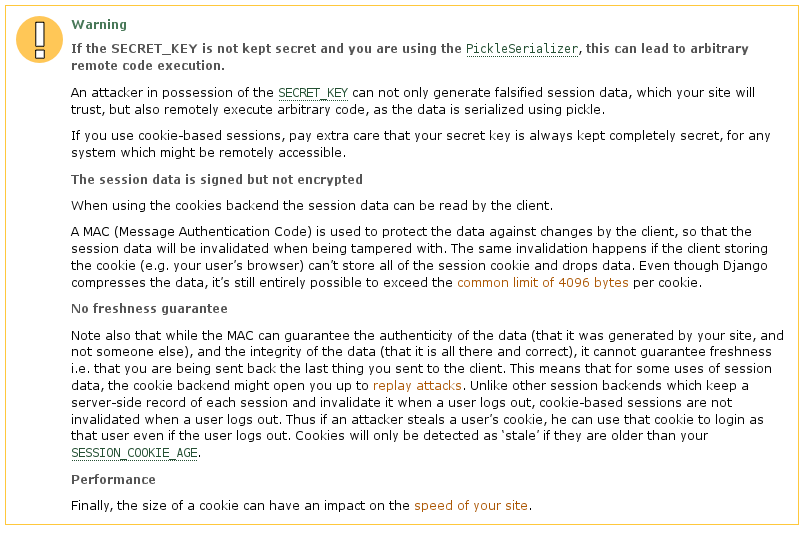
I’ve been working with the Havanna release of OpenStack the last couple of days and ran across a default setting that should be avoided in any deployment: using cookies as the session backend.
The source of the problems has been known at least since October 2013 in Django and other frameworks: clear-text client-side session management.
There is even OSVDB entry and Threatpost covered it in an article.
Background
Horizon or the OpenStack dashboard is based on a stack of Django, D3, Hogan.js and jQuery.

Both the OpenStack and Django documentation reflect the issue:
- Ubuntu 12.04.2 LTS
Uses memcache so it is OK
for i in `dpkg -L openstack-dashboard|egrep "local_settings|settings"`; do grep -iH SESSION_ENGINE $i; done /usr/share/openstack-dashboard/settings.py:SESSION_ENGINE = 'django.contrib.sessions.backends.cache' /usr/share/openstack-dashboard/openstack_dashboard/settings.py:SESSION_ENGINE = 'django.contrib.sessions.backends.cache'
- Ubuntu 13.10
Uses signed cookies so the vulnerability is present
for i in `dpkg -L openstack-dashboard|egrep “local_settings|settings”`; do grep -iH SESSION_ENGINE $i; done
/usr/share/openstack-dashboard/openstack_dashboard/settings.py:SESSION_ENGINE = ‘django.contrib.sessions.backends.signed_cookies’
/usr/share/openstack-dashboard/settings.py:SESSION_ENGINE = ‘django.contrib.sessions.backends.signed_cookies‘
- CentOS 6.5
Uses signed cookies so the vulnerability is present
for i in `rpm -ql openstack-dashboard.noarch| egrep “local_settings|settings”|egrep “.py$”`; do grep -iH SESSION_ENGINE $i; done
/usr/share/openstack-dashboard/openstack_dashboard/settings.py:SESSION_ENGINE = ‘django.contrib.sessions.backends.signed_cookies‘
The Impact
If someone is able to find, steal or even sniff a user’s cookie they can log into your OpenStack as that user event if the user has logged out.
Solution
If possible avoid using cookies or any other client-side session managemet and configure it to use server-side solution, like memcache.



10. June 2014 at 23:32
Great article Pablo! This problem is exacerbated with Horizon deployments which are not configured to use SSL.